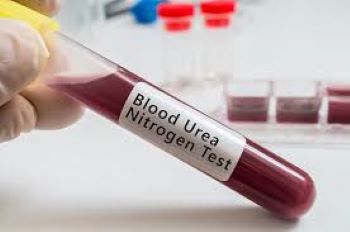When it comes to understanding kidney function and overall health, two terms often come up: Blood Urea Nitrogen (BUN) and urea. Though related, these terms refer to different aspects of the body’s metabolic processes. Let’s explore what each term means, how they differ, and why they’re important.
What is Urea?
Urea is a chemical compound that plays a crucial role in the body’s waste management system. It is created in the liver as part of the urea cycle, which is responsible for converting ammonia—a toxic byproduct of protein metabolism—into a less toxic substance, urea. This urea is then released into the bloodstream and transported to the kidneys, where it is filtered out and excreted in urine.
Key Points about Urea:
- Chemical formula: (NH₂)₂CO
- Formed in the liver
- Helps remove excess nitrogen from the body
- Excreted through urine
What is blood urea nitrogen?
ALSO READ The Environmental Impact of RAILBUS systems in Nigeria
Blood Urea Nitrogen is a medical term used to describe the concentration of nitrogen in the blood that comes from urea. Its test measures the amount of nitrogen, specifically from urea, present in your bloodstream. It’s an essential indicator used by healthcare professionals to assess kidney function and monitor conditions that may affect the kidneys.
Key points about BUN:
- Represents the nitrogen portion of urea in the blood
- Measured through a blood test
- Used to evaluate kidney function
- High BUN levels may indicate kidney dysfunction or other health issues
The differences between BUN and Urea
While BUN and urea are closely related, they are not the same:
- Composition and Measurement:
- Urea: A specific compound formed in the liver.
- BUN: A measurement of the nitrogen content in urea within the blood.
- Role in the Body:
- Urea: Acts as a carrier to remove excess nitrogen.
- BUN: Serves as an indicator of how well the kidneys are functioning.
- Testing and Implications:
- Urea Levels: Directly measured in the urine to assess kidney excretion efficiency.
- BUN Levels: Measured in the blood to monitor kidney function and detect potential health issues.
Why are BUN and Urea important?
Understanding the levels of urea and BUN in the body is vital for diagnosing and managing various health conditions:
- Kidney Health: Elevated BUN levels may indicate impaired kidney function, dehydration, or other conditions affecting the kidneys. Low BUN levels, although less common, can also signify liver disease or malnutrition.
- Metabolic Balance: Urea production and excretion help maintain the body’s nitrogen balance, which is crucial for metabolic health.
- Medical Monitoring: Regular monitoring of BUN and urea levels can help track the progression of kidney diseases, the effectiveness of treatments, and overall metabolic health.
Conclusion
While BUN and urea are intertwined in their roles and functions, it’s essential to recognize their differences. Urea is a waste product formed in the liver, helping to eliminate excess nitrogen, while BUN is a measure of the nitrogen content derived from urea in the blood. Both are critical for assessing and maintaining kidney health and ensuring the body’s metabolic processes are running smoothly. Regular check-ups and understanding these terms can lead to better health outcomes and more informed medical care.
Source: HealthMatters


